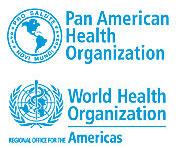 Delegates
from more than 30 PAHO/WHO member countries met in Cuba to discuss
actions to ensure they can detect and contain any introduction of Ebola
virus disease in Latin America or the Caribbean
Delegates
from more than 30 PAHO/WHO member countries met in Cuba to discuss
actions to ensure they can detect and contain any introduction of Ebola
virus disease in Latin America or the Caribbean
Havana, Cuba – Delegates
from more than 30 countries of the Americas held discussions on October
29 and 30 in Havana, Cuba, on preparedness planning for the possible
introduction of an imported case of Ebola virus disease (EVD), during a
meeting convened by the Bolivarian Alliance for the Peoples of the
Americas (ALBA), the Ministry of Health of Cuba, and the Community of
Latin American and Caribbean States (CELAC), with the support of the Pan
American Health Organization/World Health Organization (PAHO/WHO).
Technical teams from ministries of health throughout the hemisphere
shared their plans, exchanged experiences, and examined the latest
guidance and recommendations on Ebola, with a focus on epidemiological
surveillance and response, clinical management, human resources
training, and communication. The delegations agreed on lines of action
in these areas and pledged to continue exchanging experiences in
preparing for the disease.
PAHO/WHO has been working proactively with its member countries
throughout the Americas, providing advice and support to ensure they are
prepared for the potential introduction of Ebola, particularly to
ensure they are able to prevent local transmission of the disease
following any imported case.
"Each country must be prepared to respond," said Jose Luis Di Fabio,
PAHO/WHO's Representative in Cuba, "There will not be time to wait for a
rapid international response." He thanked Cuba, on behalf of PAHO
Director Carissa F. Etienne, for convening technical delegations on
short notice to discuss the issue.
"The risk of introduction of Ebola is real, but we are working with a
scenario that assumes few and sporadic cases," said Sylvain Aldighieri,
chief of PAHO/WHO's International Health Regulations (IHR) and Alert
and Response unit. "The goal of our countries is to detect any case as
quickly as possible, contain the chain of transmission and prevent other
cases in the country. All sectors need to work on planning."
Minister of Health of Cuba Roberto Morales Ojeda said his country is
ready to collaborate in the Americas and globally to prepare for Ebola.
He noted that Cuba has sent more than 250 health professionals to
support the affected countries in West Africa--Guinea, Liberia and
Sierra Leone—where to date Ebola has sickened more than 10,000 people
and claimed nearly 5,000 lives.
In the Americas, four cases have been registered in the United
States, two of them imported from West Africa. Nelson Arboleda, of the
U.S. Centers for Disease Control and Prevention (CDC), described the
United States' experiences with these cases and said the CDC would
support preparedness missions that PAHO/WHO is sending to its member
countries in Latin America and the Caribbean.
The meeting on Ebola took place a week after heads of state from ALBA
countries discussed the subject at a summit meeting. At that meeting,
PAHO Director Etienne announced that PAHO/WHO would be sending missions
to the region's countries to support their implementation of national
multisectoral preparedness plans, which include establishing isolation
facilities and stepping up surveillance and risk communication.
PAHO/WHO recommends that any member country that detects a case of
imported Ebola be prepared to implement the following measures to
prevent local spread of the disease:
•Rigorous infection control measures
•Isolation of cases
•Contact tracing
•Access to and correct use of personal protective equipment for health workers
•Community education with clear, updated and transparent information
•Risk communication
•Coordinated implementation of public health measures in a manner that is proportional to the risks.
PAHO/WHO has created a special task force to advise and support
countries in implementing the recommendations of the Emergency Committee
of the International Health Regulations (IHR) and to coordinate a
regional response to the potential importation of the disease in Latin
America or the Caribbean. The recommendations of the IHR Emergency
Committee are available in the document Ebola virus disease (EVD):
Preparedness and response for introduction in the Americas.
Additional information on Ebola in the Americas is available atwww.paho.org/ebola
